Microsoft Dynamics 365
What is Microsoft Dynamics 365?
Dynamics 365 is a cloud-based portfolio of business applications from Microsoft that are designed to help organizations improve operational efficiency and reduce business complexity while controlling costs. The Dynamics 365 portfolio includes applications for sales, marketing, customer service management, finance and supply chain management.
Dynamics 365 is a suite of interconnected business applications to satisfy a wide range of business needs. Each application is modular and can be connected with existing tools and systems to extend their capabilities and build a comprehensive business tech stack.
The cloud applications in Dynamics 365 are designed to be intelligent and connected by data, which allows them to work together and connect many different functions of a business: Dynamics 365 allows all the activities in those various business functions to talk to each other and share relevant data. Such hyperconnectivity allows organizations to eliminate operational data silos and improve overall business efficiency, productivity, output and costs.
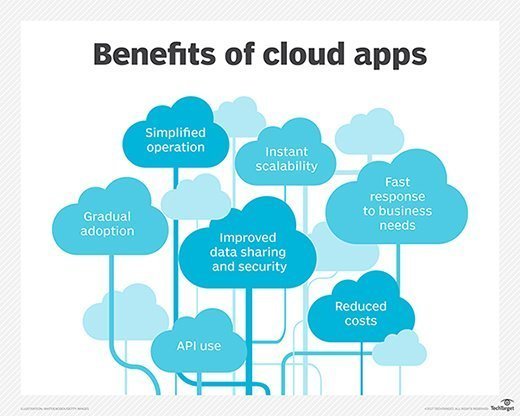
Key modules in Dynamics 365
Dynamics 365 includes modules for the following:
- Sales and marketing.
- Customer support.
- Finance.
- Supply chain management.
The Sales and marketing module provides end-to-end views of a customer base so businesses can better understand their target market, and then implement tactics to improve sales and engagement. They can also use the module to predict customer intent, improve lead generation and qualification, and enrich customer relationships. The module can be augmented with AI-powered tools, automation and real-time coaching to accelerate the sales pipeline, close more deals, increase revenue and deliver a personalized customer experience (CX). It includes collaboration and productivity tools that allow disparate teams to work together to access connected data and improve business results.
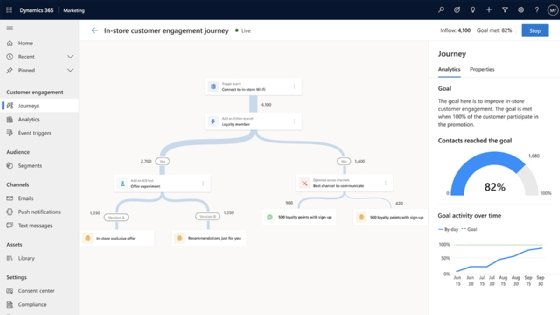
The Service module is designed for companies looking to optimize their service operations and deliver personalized service experiences to every customer. The module uses generative AI and an AI-based assistant called Copilot. These advancements enable organizations to provide self-service capabilities to their customers. They also help to resolve customer issues faster, save agents' time and make it easy to deliver tailored CX at every touchpoint. In addition, AI-powered insights and automation enable service teams to collaborate better and drive more efficiency in the service function.
The Finance module in Dynamics 365 is designed to drive agility in financial and business operations. Its features enable companies to gain more visibility into financials and leverage real-time reporting, embedded analytics and AI insights to make better decisions. A single application brings various enterprise teams together, making it easier to manage cross-functional projects and deliver them on time and within budget. Finance professionals can also use the module to create connected financial analytics models that enable the organization to prepare for the future, avoid disruptions and achieve efficiencies.
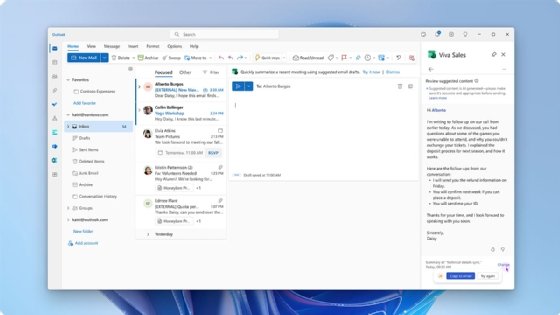
The Supply chain module addresses manufacturing operations and digital commerce needs. It helps create a digital supply chain that allows managers to predict supply chain disruptions and make quick adjustments so the business can adapt to changing demand and stay profitable. The module includes real-time AI features that enable supply chain professionals to improve overall equipment effectiveness, reduce downtime, optimize inventory, eliminate stockouts and automate work orders and order fulfilment. It also supports predictive analytics technologies, internet of things (IoT) and mixed reality (blending the physical and digital worlds) to simplify shop floor management and help build agile and sustainable manufacturing processes.
In addition, Dynamics 365 includes apps like Dynamics 365 Commerce and Dynamics 365 Human Resources. Commerce is designed to be useful for seamlessly unifying back-office, in-store, call centers and digital experiences. Human Resources helps automate many recordkeeping and staffing tasks for HR departments.

Business benefits of Dynamics 365
One of the benefits of the Microsoft Dynamics 365 portfolio is that it provides a comprehensive view of operations and customers. Such a 360-degree view enables organizations to identify business and technology issues and complexities and take steps to reduce both. Companies can quickly adopt the modular, scalable applications in the Dynamics 365 suite to improve processes, enable collaboration across teams and adapt functions to keep up with evolving customer needs, trends and market conditions.
All the applications in Dynamics 365 are data driven and generate useful insights that enable businesses to identify problems and opportunities. Those insights can be combined with AI to drive tangible results related to sales, revenue, cost savings, profits and more. Organizations can also leverage emerging technologies such as mixed reality, IoT and advanced analytics to accelerate innovation, boost operational scalability and deliver memorable customer experiences.
In addition, all the applications in Dynamics 365 are intended to work together on a single platform, eliminating the need to maintain separate customer relationship management (CRM) and enterprise resource planning (ERP) systems. Since the platform provides the capabilities of both types of tools, it enables organizations to do the following:
- Use data and insights to engage with customers and create exceptional CX.
- Optimize operations and improve service quality and delivery.
- Create innovative products.
- Get prescriptive guidance to reduce costs and drive efficiencies.
- Identify new market opportunities.
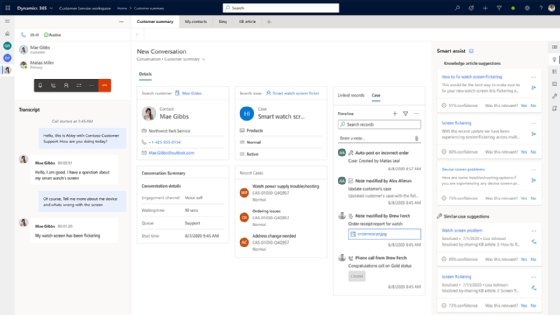
Dynamics 365 and Power Platform
Dynamics 365 is built on Microsoft Power Platform, a suite of tools that enable organizations to automate processes, analyze data, build apps and create virtual agents (chatbots). These tools include Power BI data visualization software, Power Apps application builder, Power Pages website builder, Power Automate automation tool and Power Virtual Agents bot builder. Dynamics 365 and Power Platform share data and intelligence, so an organization can build end-to-end business systems for their specific needs. The two portfolios also can be connected to the Azure cloud and third-party applications to solve business problems, build time-saving automations and digitize operations.
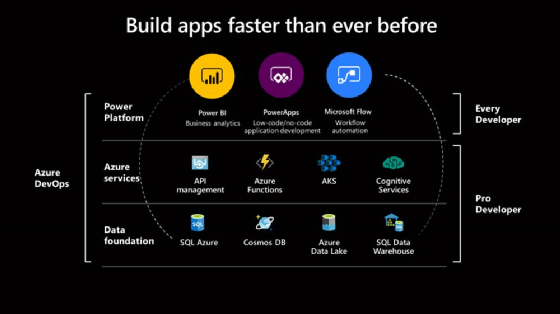
Dynamics 365 and artificial intelligence
Dynamics 365 incorporates numerous AI-driven capabilities to generate useful insights, make predictions, improve visibility and improve operations, products and CX. These capabilities are available in all Dynamics 365 modules. For example, in Dynamics 365 Sales, AI-powered insights enable sales teams to enhance customer interactions and optimize sales activities. AI insights are also available in Dynamics 365 Service to create smart bots that provide exceptional customer service. Similarly, Fraud Protection in Dynamics 365 Commerce uses AI to highlight possible instances of fraud in e-commerce businesses.
INSERT VIDEO
Explore how CRM platforms vs. content management systems differ and integrate and get to know 3 types of CRM systems. Check out Microsoft Power Apps use cases for organizations and review Power Apps best practices to build business apps.







